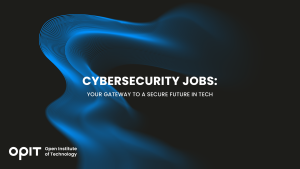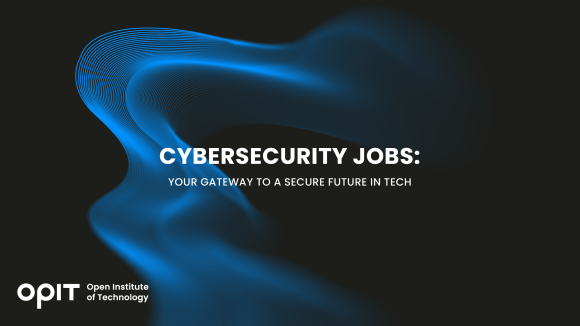

Cybersecurity has been a necessity ever since the advent of digital technology. However, decades ago, few would’ve envisaged just how much demand would eventually grow. Information technology is now such an integral part of modern life, everyone needs to safeguard their digital footprint.
As a result, demand for cybersecurity professionals has never been greater. Let’s take a closer look at both the governmental and private sector positions now available.
The Landscape of Cybersecurity Jobs
The roles within the scope of cybersecurity are broad but united by a common goal: protecting digital assets. Each cybersecurity job relies on another for a comprehensive cyber defense system. Here are some examples:
- Security analysts scrutinize and fortify network defenses.
- Ethical hackers preemptively probe systems for vulnerabilities.
- Incident responders who manage the aftermath of security breaches.
- Security architects who design robust security structures.
- Compliance officers who verify and promote adherence to data protection laws and regulations.
- Malware analysts analyze the nature of malicious software to develop defenses against it.
- Network security engineers take care of the security of an organization’s network from threats and vulnerabilities by installing firewalls and running tests, among other activities.
- Cybersecurity consultants share expert advice to organizations on how to protect their digital assets and follow regulations.
- Information security managers oversee the operations of an organization’s information security department.
- Penetration testers, much like ethical hackers, are authorized to attack systems to find vulnerabilities from an adversary’s perspective.
- Forensic computer analysts, the “detectives” of cybersecurity, investigate cybercrimes by analyzing digital evidence to track down perpetrators and find out the details of a breach.
- Chief information security officer (CISO) is a high-ranking executive responsible for an organization’s overall security strategy against cyber threats.
These professionals are collectively in high demand across various industries. Healthcare, government, finances, and technology, to name but a few. All these industries now depend on valuable documents and client information stored in local databases or the cloud. They also typically boast websites, for both client services and information, which may be targets for malicious actors and attackers. This diversity underscores the universal relevance of cybersecurity, transcending industry boundaries.
Qualifications and Skills for Cybersecurity Careers
Education, certifications, and hands-on experience collectively underpin the path to a cybersecurity job. It’s worth knowing that for you to succeed in the field, you don’t absolutely need a specialized degree, though it certainly helps. However, a bachelor’s degree in computer science, information technology, or a specialist cybersecurity qualification will give you a strong foundation.
Still, the field also places a premium on specialized certifications. Certifications such as CompTIA Security+, Certified Information Systems Security Professional (CISSP), Certified Ethical Hacker (CEH), along with OPIT’s master’s degree in cybersecurity are accolades that signify a professional’s know-how in the field. As such, they will likely put you ahead of the competition for a job position. The competition for cybersecurity jobs is strong, so try and obtain all the qualifications you can get.
OPIT’s MSc in Enterprise Cybersecurity program is one of the best examples of the integration of various fields that link together to create comprehensive cybersecurity measures. It combines theoretical knowledge with practical application, such as simulated cyberattacks, or problems modeled after real-world cyber emergency situations. The program covers a broad spectrum of topics, such as network security, threat intelligence, and legal aspects and ethical considerations.
One of the most valuable cybersecurity skills isn’t one that could be passed down through books or traditional lectures. That skill is strategic thinking. Your strategic mind must be ready to come up with actionable solutions in the heat of the moment, possibly as a response to a situation you’ve never seen before. For that reason, expect this ability to be scrutinized at a cybersecurity job interview.
Building a Career in Cybersecurity: Here’s How You Do It
As mentioned, building a career in cybersecurity takes continuous learning and adaptation, even after you land the job. After laying groundwork for understanding the field through formal education and certification, follow up with internships and entry-level positions. This way, you’ll get invaluable hands-on experience in scenarios that aren’t simulated, rather scenarios with real-life consequences. This is your chance to prove yourself and put what you’ve learned to the test while making a difference for genuine clients or employers.
OPIT offers you a curriculum that balances academic rigor with practical relevance. Students taking this course engage in project-based learning, simulations, and internships, gaining exposure to the challenges they’ll face in their professional careers. Furthermore, OPIT’s strong industry connections mean that students have a one-of-a-kind opportunity to network with seasoned cybersecurity professionals and organizations. This kind of access opens doors to possible quick employment opportunities once you’re out of the program.
Trends in Cybersecurity Employment
Technological advancements drive bad actors to find new vulnerabilities to exploit. For example, the recent rise of AI and machine learning has enabled more sophisticated threat detection and response mechanisms. However, these technologies have their weak spots, many of which are substantially different from what cybersecurity specialists are used to handling.
Recent reports warn of “worms” that could be injected into language models to fish for users’ personal data. Another interesting phenomenon is a tool that claims to “poison” an AI’s training data against training on copyrighted art. In the wrong hands, this could cause significant damage.
Furthermore, “traditional” malware isn’t going anywhere, particularly with the rise of ransomware and identity theft in the last few years. The same goes for malicious software installing crypto miners without a user’s consent. The demand for cybersecurity professionals will grow exponentially, with the Bureau of Labor Statistics projecting a 31% increase in employment of information security analysts from 2019 to 2029. A rate much higher than the average for other occupations.
Security for All
The field of cybersecurity jobs is a promising career path for those looking to make a significant impact in the tech industry. As digital threats proliferate, the need for skilled professionals to combat them has never been greater. OPIT’s cybersecurity programs are at the forefront of this challenge, giving students the knowledge, skills, and insights needed to secure a rewarding future career.
Have questions?
Visit our FAQ page or get in touch with us!
Write us at +39 335 576 0263
Get in touch at hello@opit.com
Talk to one of our Study Advisors
We are international
We can speak in:




